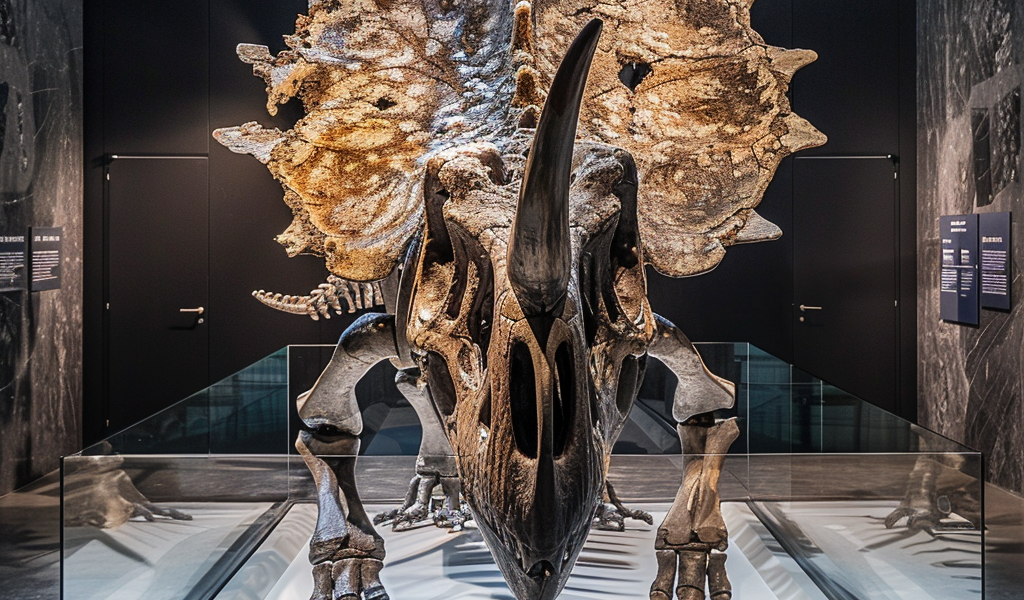A newly discovered dinosaur species has been unveiled at the Museum of Evolution in Maribo, Denmark, captivating visitors with its unique features. The dinosaur, now named Lokiceratops rangiformis, lived approximately 78 million years ago in what is now northern Montana, near the US-Canada border.
Joseph Sertich, a paleontologist involved in the study revealing this discovery, expressed surprise at finding a completely new species in an area known for horned dinosaurs. The fossil was unearthed on private land in 2019 by Mark Eatman, a commercial paleontologist with a track record of significant discoveries, including a nearly complete Tyrannosaurus rex skeleton.
The newly named Lokiceratops lived on an island called Laramidia, which was isolated from the rest of North America during its time. The dinosaur coexisted with other horned species in swampy and floodplain environments along the island’s eastern shore, as detailed in the recent research publication in the journal PeerJ.
Described as a ‘success story’ by Sertich, Lokiceratops adds to the rich tapestry of prehistoric life and highlights the importance of museum acquisitions in preserving such invaluable specimens for public display and scientific study.





